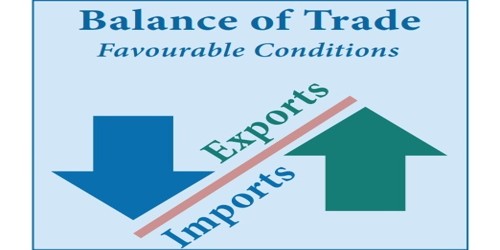
Planning for retirement can be overwhelming, but it doesn't have to be. The key to securing a worry-free future is through effective personal finance strategies. The road to financial stability may be long, but it's worth it.
In this article, we'll guide you through the core components of personal finance, from understanding financial planning to investing in your future. We'll explore various retirement savings vehicles, including calculating retirement needs and strategies for managing debt.
Key Takeaways
- Personal finance is essential for securing a worry-free retirement.
- Effective financial planning involves budgeting, debt management, and investing.
- Creating a budget and tracking expenses is crucial for managing personal finances.
- Managing debt and building credit are crucial components of personal finance.
- Investing in your future is vital for long-term financial growth.
Understanding Personal Finance
Personal finance is the management of one's financial resources to achieve financial goals and objectives. Financial planning is a critical component of personal finance, as it helps individuals identify and prioritize their financial goals, develop a plan to achieve them, and track their progress over time.
Effective financial planning involves a thorough understanding of various financial instruments and strategies, as well as an assessment of one's current financial situation. By examining income, expenses, debts, and assets, individuals can create a comprehensive financial plan that takes into account both short-term and long-term goals.
Budgeting
One of the core components of personal finance is budgeting. Budgeting involves tracking income and expenses, developing a spending plan, and monitoring progress over time. Creating a budget is a critical step in gaining control over one's finances and achieving financial independence.
"A budget is telling your money where to go instead of wondering where it went." - Dave Ramsey
By establishing a realistic budget, individuals can identify areas where they can reduce expenses and increase savings. Budgeting also helps individuals avoid overspending and accumulating debt, as they are better able to prioritize their spending and allocate resources accordingly.
Debt Management
Effective debt management is another critical component of personal finance. By managing debt properly, individuals can reduce the financial burden of interest payments and improve their credit score. Debt management strategies may include consolidating debts, negotiating with lenders, and developing a repayment plan.
It's important to note that not all debt is bad. Investments in education or real estate, for example, may result in increased earning potential and long-term financial benefits. However, it's important to manage debt carefully to avoid becoming overburdened with high-interest loans and credit card debt.
Investing
Investing is a key strategy for long-term financial growth. By investing wisely, individuals can increase their wealth and achieve financial goals such as retirement or financial independence. Investment options may include stocks, bonds, mutual funds, and real estate investments.
When investing, it's important to understand the risks involved and to diversify one's portfolio to minimize risk. Investing requires patience, diligence, and a long-term perspective.
By understanding the core components of personal finance, individuals can develop a comprehensive financial plan that helps them achieve their financial goals and objectives. With effective financial planning, individuals can secure their financial future and enjoy a worry-free retirement.
Creating a Budget for Financial Success

One crucial aspect of personal finance is creating a budget. A budget is a financial plan that outlines your income and expenses, helping you manage your finances effectively. A well-designed budget provides a clear picture of how you spend your money and allows you to make informed decisions about your spending habits.
Here are some tips to develop a realistic budget:
- Track your expenses: Keep track of your daily expenses for a month to identify your spending patterns. You can use a spreadsheet, notebook, or an app to record your expenses.
- Categorize your expenses: Divide your expenses into categories such as housing, transportation, food, entertainment, and utilities. This will give you a better understanding of how you spend your money.
- Set financial goals: Define your financial goals and determine how much you need to save each month to achieve them. Whether it's paying off debt or saving for a vacation, having a specific goal in mind motivates you to stick to your budget.
- Create a plan: Use the data you collected to create a budget plan. Allocate a specific amount of money to each category and ensure that your total expenses do not exceed your income.
- Stick to your budget: The most important step is to stick to your budget. Avoid overspending by keeping track of your expenses and making adjustments as needed.
A budget is an essential tool for managing your personal finances effectively. The benefits of budgeting include:
- Control over your spending habits
- Reduced financial stress
- Better decision-making
- Increased savings
- Improved financial security
Implementing a budget requires discipline and dedication, but the rewards are worth it. With a well-designed budget, you can achieve your financial goals and secure a brighter future.
Managing Debt and Building Credit
Managing debt and building credit are two critical components of personal finance. Debt can be a real burden on personal finances, weighing people down with interest payments and fees. On the other hand, a good credit score can open doors to opportunities like low-interest loans and credit cards with appealing rewards programs. In this section, we will explore effective strategies for managing debt and building credit.
Managing Debt
Managing debt is a crucial part of financial planning and should be a top priority for anyone looking to improve their financial health. Here are some helpful tips to keep in mind:
- Create a budget: A budget is a useful tool to help you manage debt. By tracking your expenses, you can identify areas to cut back on spending and allocate more money towards paying off debt.
- Prioritize high-interest debt: Pay off high-interest debt first, as this will save you more money in the long run. Consider consolidating debt with a personal loan or a balance transfer credit card.
- Negotiate with creditors: If you are struggling to make repayments, contact your creditors and ask for help. They may be willing to reduce interest rates or work out a payment plan.
In addition to these tips, it's important to check your credit report regularly to ensure that there are no errors or discrepancies that could be negatively impacting your credit score.
Building Credit
A good credit score is essential for securing loans, mortgages, and credit cards with favorable terms. Here are some tips to help build and maintain a strong credit score:
- Pay bills on time: Late payments can have a significant negative impact on your credit score. Set up automatic payments or reminders to help you stay on track.
- Keep credit utilization low: Try to keep your credit utilization (the amount of credit you're using compared to your credit limit) below 30%.
- Don't apply for too much credit at once: Applying for multiple lines of credit in a short period could hurt your credit score. Only apply for credit when you need it.
By following these strategies, you can take control of your debt and build a strong credit score. Remember, managing debt and building credit takes time and discipline, but the benefits are well worth the effort.
Investing in Your Future

Investing your money is an essential component of personal finance and building long-term wealth. While there are many investment options available, it's crucial to understand the risks and potential rewards of each. Here are some tips to get started with investing:
- Set clear goals: Before choosing an investment strategy, determine your financial goals and risk tolerance. Are you looking for short-term gains or long-term growth? How much risk are you willing to take on?
- Diversify your portfolio: Don't put all your eggs in one basket. Diversifying your investments across different assets and industries can help mitigate risk and increase potential returns. Consider investing in stocks, bonds, mutual funds, real estate, or other types of assets.
- Understand risk: Every investment carries some level of risk. Understanding the risks associated with each investment type is essential for making informed decisions. Research and analyze historical trends and market conditions to gauge potential outcomes.
- Start small: If you're new to investing, start with a small amount and gradually increase your investment as you become more comfortable and confident.
- Stay informed: Keep up to date with market trends and economic conditions that may impact your investments. Don't make hasty decisions based on emotions or headlines.
Investing in a 401k or IRA is a great way to save for retirement. These plans offer tax advantages and long-term investment options that can help grow your retirement savings. Consider speaking with a financial advisor to determine the best investment strategy for your individual needs and goals.
Planning for Retirement
Retirement planning is a crucial aspect of personal finance that requires careful consideration and strategic preparation. To ensure a comfortable and secure retirement, it is essential to start planning early, assess your financial situation, set realistic goals, and choose the right retirement savings vehicles.
Factors to Consider
Several factors should be considered when determining retirement goals. These include:
- Your current age and retirement age
- Your life expectancy
- Your expected retirement income and expenses
- Your risk tolerance and investment preferences
Retirement Savings Vehicles
There are several retirement savings options available, including:
| Retirement Savings | Features |
|---|---|
| 401(k) Plans | Employer-sponsored retirement plans that allow you to contribute a portion of your salary on a pre-tax basis |
| Individual Retirement Accounts (IRAs) | Savings accounts that allow you to contribute pre-tax income, with tax-free growth until withdrawal during retirement |
| Roth IRAs | Savings accounts that allow you to contribute post-tax income, with tax-free growth and withdrawals during retirement |
| Pension Plans | Employer-sponsored retirement plans that provide pre-determined benefits during retirement |
Calculating Retirement Needs
Calculating your retirement needs involves assessing your retirement income sources and expenses. A general rule of thumb is that you will need to replace about 70-80% of your pre-retirement income to maintain your standard of living in retirement. You can use retirement calculators or financial advisors to help determine your retirement needs.
By following these retirement planning strategies, you can ensure a comfortable and secure future.
Saving Money for Future Expenses

Building a comfortable retirement fund is a top priority for many individuals. However, it is not the only financial goal worth considering. Saving for future expenses beyond retirement is equally essential. With careful planning and effective personal finance strategies, you can ensure that you are prepared for any unexpected expenses that may arise.
Emergency Fund
Establishing an emergency fund is an essential component of any solid financial plan. An emergency fund serves as a safety net for unexpected expenses, such as major car repairs, medical bills, or unemployment. Financial experts recommend having 3-6 months of living expenses saved in an emergency fund, so you can weather unforeseen financial storms without having to dip into other savings or take on debt.
| Benefits of an Emergency Fund | Drawbacks of Not Having an Emergency Fund |
|---|---|
|
|
Saving for Major Life Events
Saving money for significant life events, such as buying a house, paying for education, or starting a business, is critical to ensuring long-term financial stability. These events often require substantial upfront costs, and a lack of proper planning and savings can lead to financial strain and debt.
Consider setting up a separate savings account for each significant life event and contributing regularly to build up the necessary funds. Determine a realistic timeline for each goal and adjust your contribution amount accordingly. Remember to prioritize emergency savings and retirement savings before allocating funds for other life events.
Maximizing Savings with High-Interest Accounts
Another way to ensure your savings are working hard for you is to consider high-interest savings accounts or certificates of deposit (CDs). These accounts typically have higher interest rates than traditional savings or checking accounts, allowing you to earn more on your savings over time.
Research different account options and compare interest rates and fees before deciding on a high-interest account. Also, consider the accessibility of the funds, as some accounts may have penalties or restrictions on withdrawals.
By incorporating these strategies into your personal finance plan, you can rest assured that you are prepared for any future expenses that may come your way. Remember, saving money is not just about having a comfortable retirement; it's about building financial security throughout your entire life.
Understanding Insurance Options
Personal finances can be unpredictable, making insurance an essential component of any financial plan. Insurance protects against losses and liabilities associated with unexpected events, such as accidents or illnesses.
Various insurance options are available for individuals seeking to secure their financial future. These options include life insurance, health insurance, property insurance, and other coverage types.
Life Insurance
Life insurance is an important consideration for anyone with dependents or outstanding debt. It provides financial support to beneficiaries in the event of the policyholder's death. Life insurance policies can be term-based or permanent, and premiums are typically based on the policyholder's age, health, and lifestyle.
Health Insurance
Healthcare costs can be a significant financial burden, making health insurance an important investment. Health insurance policies cover medical expenses associated with illness or injury and can be purchased through employers, private insurers, or government programs.
Property Insurance
Property insurance protects against damage or losses to personal property, such as homes, cars, and other valuable assets. Policies can cover natural disasters, theft, and other unexpected events that result in property damage or loss.
Other Coverage Types
Other insurance coverage options include disability insurance, long-term care insurance, and liability insurance. Disability insurance provides financial support in the event of a serious illness or injury that prevents the policyholder from working. Long-term care insurance covers the cost of long-term medical care in the event of a chronic condition or disability. Liability insurance protects against legal liability associated with personal injury or property damage caused by the policyholder.
When assessing insurance options, it's important to consider individual needs and risk factors. Some individuals may require more extensive coverage than others, depending on personal circumstances, lifestyle, and financial goals.
Navigating Tax Planning
Tax planning is an essential aspect of personal finance that helps individuals minimize their tax liabilities while maximizing their savings. By taking advantage of various tax deductions and credits, you can significantly reduce your tax burden and free up more money for other important financial goals. In this section, we'll explore some effective tax planning strategies that can help you achieve your financial objectives.
Understanding Your Tax Bracket
One of the first steps in tax planning is understanding your tax bracket. Your tax bracket is determined by your taxable income and can impact the amount of tax you owe. By analyzing your tax bracket, you can determine the tax-saving opportunities available to you, such as taking advantage of deductions and credits.
Maximizing Your Retirement Contributions
Contributing to retirement plans and accounts is an effective way to reduce your taxable income and maximize your savings. Traditional IRA, 401(k), and 403(b) are some of the most popular retirement accounts that offer tax benefits. For example, contributions to traditional IRAs and 401(k)s are tax-deductible, while withdrawals from Roth IRAs are tax-free.
Exploring Deductions and Credits
Deductions and credits are two essential components of the tax code that can help reduce your taxes. Deductions lower your taxable income, while credits directly reduce the amount of tax you owe. Common deductions include student loan interest, mortgage interest, and charitable donations. Popular tax credits include the Child Tax Credit, the Earned Income Tax Credit, and the Lifetime Learning Credit.
Working with a Tax Professional
While many tax planning strategies can be implemented on your own, it's essential to work with a qualified tax professional if you have complex financial situations. A tax professional can provide personalized advice on reducing your tax liabilities and ensuring compliance with tax laws.
Effective tax planning is critical for long-term personal finance success. By understanding your tax bracket, maximizing your retirement contributions, exploring deductions and credits, and working with a tax professional, you can significantly reduce your tax burden and achieve your financial goals.
Monitoring and Improving Your Financial Health
Effective personal finance strategies are not just about planning and execution; they also require continuous monitoring and improvement to achieve long-term success. By consistently assessing your financial health, you can make necessary adjustments and stay on track toward your goals.
Tracking Progress
A good way to monitor your financial health is by tracking your progress toward meeting your financial goals. This can involve regularly reviewing your budget, investment portfolio, and retirement savings to ensure you are on track to meet your targets. Consider creating a spreadsheet or using an online tool to track your progress.
Setting Goals
To achieve long-term financial success, it's essential to set goals and work toward achieving them. This can involve setting short-term goals (such as paying off credit card debt) and long-term goals (such as saving for retirement). By setting goals, you give yourself something to work toward and a way to measure your progress.
Adjusting Strategies
As you monitor your financial progress, you may find that your current strategies are not working as well as you had hoped. Don't be afraid to adjust your strategies as needed to achieve your goals. This may involve reevaluating your budget, changing investment strategies, or adjusting your retirement savings plan.
Seeking Professional Advice
If you're struggling to reach your financial goals or need help developing a financial plan, consider seeking professional advice. A financial advisor can help you assess your financial health, create a customized financial plan, and provide ongoing guidance to help you reach your goals.
By consistently monitoring and improving your financial health, you can achieve long-term success and secure your financial future.
Achieving Financial Independence
Financial independence is a goal that many people strive to achieve in their lifetime. It means having enough financial resources to support your current lifestyle without relying on a steady income.
However, achieving financial independence requires careful planning and dedication to personal finance. It requires a long-term perspective and the ability to make sound financial decisions that maximize growth and minimize risk.
To achieve financial independence, the first step is to set clear financial goals. This involves taking stock of your current financial situation, analyzing your spending habits, and identifying areas where you can cut back on expenses. Once you have a clear idea of your financial goals, you can begin developing a plan to achieve them.
Financial planning is the key to achieving financial independence. This involves creating a budget, managing debt, investing in your future, and monitoring your financial health. It also includes understanding your insurance options, navigating tax planning, and saving money for future expenses beyond retirement.
One important aspect of financial planning that is often overlooked is the need to establish an emergency fund. An emergency fund is a separate account that contains funds that are set aside for unexpected expenses, such as medical bills or car repairs.
Another important component of financial independence is investing in your future. This involves making smart investment decisions that provide long-term growth and stability. Some investment options include stocks, bonds, and real estate.
To achieve financial independence, it is also important to constantly monitor and evaluate your financial health. This includes tracking your progress towards your financial goals, making adjustments to your financial plan as needed, and seeking professional advice when necessary.
Overall, achieving financial independence requires discipline, dedication, and a long-term perspective. It requires a commitment to personal finance and a willingness to make smart financial decisions. By following these strategies, you can achieve financial independence and secure your future.
Conclusion
Personal finance is an essential component of securing a worry-free future. By understanding the core components of personal finance, including budgeting, debt management, investing, retirement planning, saving money, insurance options, tax planning, and continuously monitoring financial health, individuals can achieve financial independence.
It's never too late to start implementing effective personal finance strategies. Take action today by creating a budget, managing debts, exploring investment options, identifying retirement goals, building emergency funds, and protecting personal finances through insurance coverage. As you track your progress and adjust strategies as needed, you can achieve financial stability and confidently plan for the future.
Start Securing Your Future Today
Don't let financial concerns prevent you from living your best life. With discipline, long-term planning, and a commitment to learning and growing, anyone can achieve financial independence. Take control of your finances today and start building a brighter future for yourself and your loved ones.
FAQ
What is personal finance?
Personal finance refers to the management of individual or household finances, including budgeting, saving, investing, and managing debt.
Why is personal finance important for retirement planning?
Personal finance lays the foundation for a secure retirement by helping individuals manage their finances effectively, build savings, and make informed investment decisions.
How do I create a budget for financial success?
Creating a budget involves determining your income, tracking expenses, and allocating funds towards different financial goals. It helps you manage your money effectively and make informed financial decisions.
What strategies can I use to manage debt and improve my credit score?
Strategies such as debt consolidation, responsible credit card management, and timely repayment can help you manage debt and improve your credit score over time.
What are some investment options for long-term financial growth?
Investing in stocks, bonds, mutual funds, and real estate are some popular options for long-term financial growth. Diversification and understanding risk are key factors to consider when investing.
How do I plan for retirement?
Planning for retirement involves setting realistic goals, understanding different retirement savings vehicles (such as 401(k)s or IRAs), and calculating how much you need to save to achieve your desired retirement lifestyle.
How can I save money for future expenses?
Saving money for future expenses can be done through creating an emergency fund, planning for education or homeownership expenses, and automating savings contributions.
What insurance options should I consider for protecting my personal finances?
Important insurance options to consider include life insurance, health insurance, property insurance, and disability insurance. These can help protect against unexpected financial setbacks.
How can tax planning benefit my personal finances?
Effective tax planning can maximize your savings and minimize tax liabilities. It involves taking advantage of tax deductions, credits, and implementing strategies to optimize your tax situation.
How do I monitor and improve my financial health?
Monitoring and improving your financial health involves regularly tracking your income, expenses, and net worth. Setting financial goals, adjusting strategies, and seeking professional advice can also help improve your financial situation.
How can I achieve financial independence?
Financial independence can be achieved by implementing effective personal finance strategies, such as budgeting, saving, investing, and reducing debt. Long-term planning and disciplined financial habits are key.








